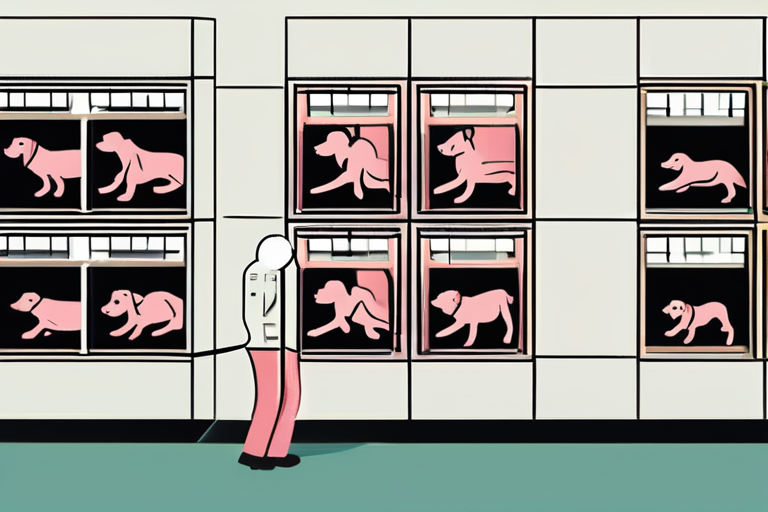Tens of thousands of beagles have been subjected to experimentation in the United States, sparking widespread outrage and calls for an end to the practice. The revelation has shed light on the secretive dog experimentation industry, which has been operating in the shadows for years.
According to a recent report, the US government has been conducting experiments on beagles in laboratories across the country, with some facilities housing over 10,000 dogs. The experiments, which have been shrouded in secrecy, have been criticized by animal welfare groups and lawmakers alike. "The use of dogs in experimentation is a cruel and outdated practice that has no place in modern society," said Sarah Kite, a spokesperson for the Humane Society of the United States. "We urge the government to take immediate action to end this practice and transition to more humane and effective methods of research."
The controversy surrounding dog experimentation has been building for years, with several high-profile cases coming to light in recent months. In one notable incident, a laboratory in Virginia was shut down after it was discovered that the facility was housing over 1,000 beagles in inhumane conditions. The incident sparked widespread outrage and calls for greater oversight of the industry.
Animal welfare groups have long argued that dog experimentation is a barbaric practice that serves no scientific purpose. "Dogs are highly intelligent and social animals that are capable of experiencing pain, fear, and stress just like humans," said Dr. Temple Grandin, a renowned animal behaviorist. "It's unconscionable that we would subject them to such cruel treatment in the name of science."
The global community has also weighed in on the issue, with many countries banning or restricting dog experimentation. In the European Union, for example, the use of dogs in experimentation is strictly regulated, and many countries have banned the practice altogether. "We believe that animal experimentation is a relic of the past and that there are far more humane and effective ways to conduct research," said a spokesperson for the European Union's Directorate-General for Health and Food Safety.
As the controversy surrounding dog experimentation continues to grow, lawmakers and animal welfare groups are calling for greater oversight and regulation of the industry. In the US, several bills have been introduced to ban or restrict dog experimentation, and many lawmakers are urging the government to take action. "We owe it to ourselves and to future generations to ensure that we treat animals with the respect and compassion they deserve," said Senator Cory Booker, a leading advocate for animal welfare.
The future of dog experimentation in the US remains uncertain, but one thing is clear: the tide of public opinion is shifting against the practice. As the global community continues to evolve and become more compassionate, it's likely that the use of dogs in experimentation will become a relic of the past.



























Share & Engage Share
Share this article